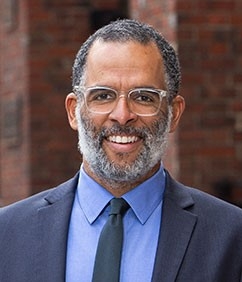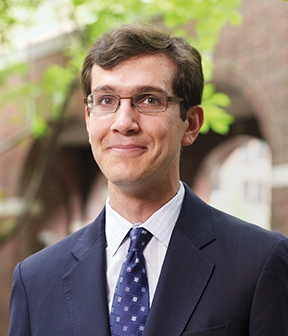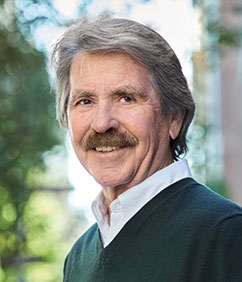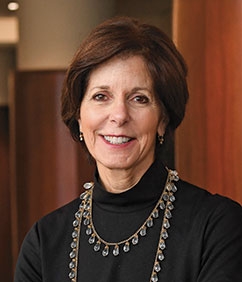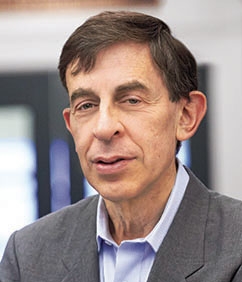The Graduate Tax Program gets creative to celebrate its 75th anniversary
NYU Law postponed its annual Reunion Weekend in response to the COVID-19 pandemic, but that didn’t prevent members of the Graduate Tax Program community from celebrating the program’s 75th anniversary. In lieu of a planned tax alumni reception at Reunion, tax graduates gathered online for a discussion of the program’s history of forward thinking and community building as well as an examination of current tax issues, including those related to the economic repercussions of COVID-19.
Established as the first graduate tax program in the nation in 1945, NYU Law’s innovative curriculum has trained generations of leading tax practitioners. It is also the home of the influential Tax Law Review, founded about the same time as the Graduate Tax Program.
Moderated by Steven Dean, the program’s faculty director, the panel included Professors Noël Cunningham LLM ’75, David Kamin ’09, Laurie Malman ’71, and Daniel Shaviro.
The discussion began with Kamin’s recollection of his time as a student at NYU Law, where he took Shaviro’s Income Taxation course the first time it was taught as a 1L elective. “Being able to be in a classroom with someone like Dan, who thinks so deeply about tax law, its undergirdings, the normative questions that drive why we have the system we do, was incredibly special,” said Kamin.
Kamin also invoked Cunningham’s Estate and Gift Taxation course, which paid instant dividends as soon as Kamin joined President Obama’s transition team as special assistant to the Office of Management and Budget’s director. He recounted that as the group prepared its first set of revenue proposals, members expressed confusion about a Treasury Department suggestion involving grantor retained annuity trusts (GRATs). What, everyone wondered, was a GRAT? Kamin pulled open his course outline and found the answer.
Cunningham evoked his time as a tax LLM student in the 1970s. “The faculty as a group really wanted to interact and help all of the LLMs have a terrific experience,” he said, as he recalled sharing a glass of Scotch or Campari with Gerald Wallace, the first tax professor NYU Law hired, during office visits in late afternoon. (Present-day students enjoy Dean’s freshly baked cookies.)
“Today, I think the faculty is at least as good,” Cunningham said. “It’s a little bit different. I think we’re a little bit more interested as a group in policy issues and where the tax law might go…. But I think we care about our students just as much as Gerry and his cohort cared about us.”
Malman described the unique challenges faced by women aspiring to tax careers after law school in the early 1970s. For female graduates of that time, landing a job could be difficult; however, with young men being drafted during the Vietnam War, employers became more willing to consider women, she said. After graduating from NYU Law, Malman was the first woman hired in her new firm’s tax practice. “What we discovered early on,” she said, “was that tax was an area where, if you knew the answers, then it really didn’t matter what you looked like, and that was very helpful.”
When Malman returned to NYU Law to teach, she designated an entire row of her class for women. “There was very much, in many endeavors, an old boys’ network, and it was necessary to form a young girls’ network,” she explained. Dean expressed pride in the program’s ability over time to build a strong group of women tax lawyers. Among those alumnae are Toni Rembe LLM ’61, former managing partner of Pillsbury Winthrop Shaw Pittman’s Tax Department; Deborah Paul LLM ’94, a partner in Wachtell, Lipton, Rosen & Katz’s Tax Department; and Chanel Frazier LLM ’11, director and chief of staff to the head of Global Fixed Income and Multi-Asset Strategies at BlackRock.
Shaviro, Wayne Perry Professor of Taxation, spoke about the renowned Tax Policy and Public Finance Colloquium, which recently celebrated its 25th anniversary. In a quarter-century, Shaviro, who now co-teaches the colloquium with Professor Lily Batchelder, has missed only three sessions.
“We really try to be interdisciplinary and reach many audiences at the same time,” Shaviro said. “We want to have a serious academic conversation with law professors, we want our students to be fully involved, there are interested practitioners who come frequently, there are economists and political scientists. We’re trying to be both very advanced and very serious and yet completely accessible…. It’s certainly been much imitated by law schools around the country.”
The faculty also offered some insights about the potential role of tax law in responding to the fallout from the pandemic. “Looking ahead, it seems likely that we’re going to continue to rely on the IRS and Treasury in trying to execute the kinds of supports that families and businesses will need,” said Kamin, “both to make it through the pandemic and then to hopefully try to support recovery.”
Speaking to the question of paying for these measures, Shaviro offered that “there are actually a lot of decent revenue sources out there that are undertapped…. but the problem is it’s easily demagogued against, and also a lot of it comes from powerful people, so it’s really going to be a challenge whether we have a failed state or a country that can still try to deal with these problems.”
The panel considered various possibilities for tax reform, depending on the outcome of the 2020 election. “There are lots of proposals out there that are worth looking at,” said Cunningham, “and I’d like to see some action in that area…. All of those should be on the table to address many, many problems, especially the growing inequality we’re having in this country.”
As the discussion concluded, Dean raised a virtual toast: “Seventy-five years is an incredible achievement…. The Graduate Tax Program has been flattered the heck out of by countless imitators. Kudos go to you guys for keeping it strong, for those who made it great it in the past, and for those yet to come.”
Posted May 14, 2020
Updated August 13, 2020


